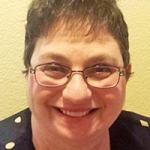 IBCLC Detailed Content Outline: Pathology / Maternal Focused CERPs - Section III B
IBCLC Detailed Content Outline: Pathology / Maternal Focused CERPs - Section III B
Access CERPs on Pathology / Maternal for the IBCLC Detailed Content Outline recertification requirements. On-demand viewing of the latest Pathology / Maternal focused IBCLC CERPs at your own pace.

Persistent Pain During Breastfeeding - A Challenge in Lactation Counseling

Alexandra Glass is a gynecologist/ obstetrician and an International Board Certified Lactation Consultant working in Hanover, Germany, where she lives with her family. Alexandra is the Vice President of BDL Lactation Consultant Association. She speaks at Local, National and International conferences and she teaches preparatory courses for the IBCLC exam. She is the mother of two daughters, who were both breastfed.
This presentation will give an overview of the reasons that can cause painful breastfeeding and how we can intervene either via breastfeeding management or medically.
The reasons might be
- poor latch
- problems with sucking, like tongue tie or other anatomical issues, also nipple confusion
- vasospasms
- infections, mastitis
- Mammary Constriction Syndrome
- injuries or medical conditions of the skin, such as psoriasis, dermatoses, eczema
- oversupply
- plugged ducts
- incorrect pumping or hand expression
- allodynia/functional pain
- psychological and emotional aspects
Important aspects concerning breastfeeding management and counselling and possible therapeutic interventions will be discussed as well as the impact of painful breastfeeding on the breastfeeding dyad and the whole family.

View Details / Enroll

View Details / Enroll

Preventing the Plunge: Why the First 2 Weeks are Crucial for Breastfeeding Duration.

Cindy Leclerc and Jana Stockham are Registered Nurses and IBCLCs with over 20 years experience helping families get started with breastfeeding. In addition to hands on care, Cindy and Jana use technology to support families through their website (cindyandjana.com), online prenatal breastfeeding classes (simplybreastfeeding.ca) and iPhone app, NuuNest. Cindy is a strong believer in mother-to-mother support, helping to facilitate breastfeeding and postpartum depression support groups. She is intrigued by all things online and actively uses social media to promote breastfeeding. Jana has been trained as a Baby Friendly assessor and helped to coordinate the first Baby Friendly designation in Saskatchewan. She has a passion to help families with new babies and facilitates a group for breastfeeding moms.
Topic: Meeting your breastfeeding goals - [View Abstract]
Topic: Preventing the Plunge: Why the First 2 Weeks are Crucial for Breastfeeding Duration. - [View Abstract]
The majority of women begin breastfeeding at birth. Within the first 6 weeks, however, breastfeeding rates fall dramatically. To help women hang in with breastfeeding beyond the first weeks, we must first understand why they struggle. Learn what the research is saying and what you can do in your practice to help women meet their breastfeeding goals. IBCLC’s who specialize in the early weeks of breastfeeding will share case examples based on over 20 years of working with breastfeeding families.

View Details / Enroll
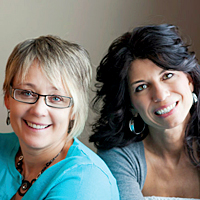
View Details / Enroll

Promoting Self-Management of Breast and Nipple Pain for Women During Breastfeeding

Ruth Lucas, PhD, RNC, CLS, received her Bachelor of Science in Nursing from George Mason University (1986) and her Doctor of Philosophy of Science (2011) from the University of Illinois at Chicago. Based on 20 years of supporting women and infants to initiate breastfeeding, her research focuses on the biobehavioral mechanisms of breastfeeding, such as breast and nipple pain. Dr. Lucas and her team conducted a pilot randomized control trial (RCT) as part of the Center for Accelerating Precision Pain Self- Management (CAPPS-M) (P20NR016605). The pilot RCT tested the feasibility, acceptability, and efficacy of a breastfeeding self-management (BSM) intervention for breast and nipple pain during breastfeeding and found the BSM intervention significantly reduced breast and nipple pain and is associated with pain sensitivity polymorphisms. Her published work describes management of pain during breastfeeding, a clinical indictor of infant breastfeeding behaviors, and a biomedical device to measure breastfeeding in real time.
Topic: Promoting Self-Management of Breast and Nipple Pain for Women During Breastfeeding - [View Abstract]
Despite 90% of women experiencing breast and nipple pain during breastfeeding, mothers rarely receive adequate knowledge and skills for breastfeeding pain self-management and cease breastfeeding. Our randomized control trial (RCT) pilot study tested the feasibility, acceptability, and efficacy of a breastfeeding self-management intervention (BSM) on breast and nipple pain and breastfeeding outcomes. Sixty women were recruited after delivery and completed survey measures of pain and breastfeeding outcomes, pain sensitivity testing and a biological sample to assess genetic risk for pain at baseline. Both groups completed pain and breastfeeding outcomes surveys via texting links using REDCap 7.4. Women in the intervention group received biweekly nurse-lead texting and cloud-based educational modules addressing breast and nipple pain and breastfeeding challenges. The BSM intervention was acceptable and sustainable for 94% of the women who continued to breastfed to 6 weeks. Acute breast and nipple pain at 1 and 2 weeks were significantly reduced and was associated with pain sensitivity polymorphisms, suggesting a genetic risk profile of pain-associated breastfeeding cessation.
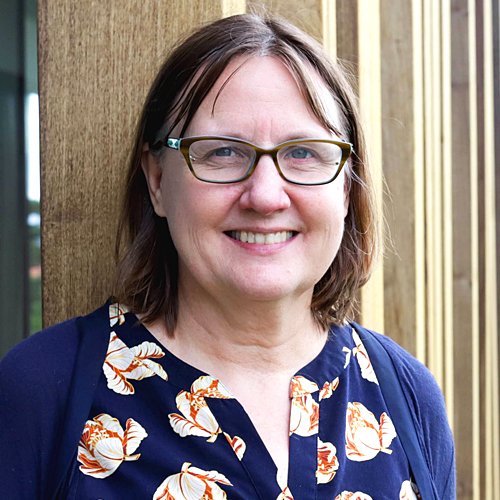
View Details / Enroll
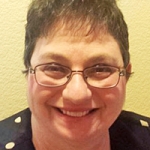

Debbie Albert, PhD, BSN, IBCLC, is a full time lactation consultant at UC Davis Med Center--working with all facets of their lactation service; including maternity floor, level IV NICU, pediatrics, PICU, and Employee Breastfeeding Support Program. She is also a prenatal instructor with their patient education program, nursing staff educator, and chairs the UCD Breastfeeding Task Force and the UCD Breastfeeding Support Program Committee. She received an Employee Excellence Award June, 2013 and June, 2015, and a Nursing Excellence Award in May, 2016. In addition, UC Davis programs have received IBCLC Lactation Care Awards and Sacramento Coalition and California State Coalition Breastfeeding Awards. Debbie has lactation experience in Florida, Texas, and California. She is Member of the LEAARC Board, a member of ILCA’s Equity Committee, and UCD Status of Women Committee. She is married to Dan Albert for 33 years, and has two sons, Josh (28), and David (24).
Raynauds is an illusive condition that tends to be confused with other conditions, misdiagnosed, and consequently rarely treated--causing the breastfeeding dyad to suffer. This program provides a review of the symptoms, medical and lactation resources, and clinical applications that facilitate most the effective treatment/comfort for the patient.

View Details / Enroll

Rusty Pipe Syndrome: A Case Report From Poland

Anna has been working as a midwife since 2009. From the very beginning of her studies she has been fascinated with breastfeeding. During her studies for her Bachelor's and Master's degrees in Midwifery, her main area of interest was promotion and support for breastfeeding among women. Anna's interest in breastfeeding turned into a passion that led her to pursue the Polish Certification of Lactation Consultant and she is working toward certification as an IBCLC. She opened a private practice and a support group for local women in Krakow (cracko). Anna’s Interest and passion for lactation and breastfeeding have deepened during her current PhD studies. She is a PhD candidate in 2018 at University Medical College and is the coordinator of the Krakow Human Milk Bank.
Her scientific area of expertise: change in milk composition (macronutrients), human microbiota during pregnancy, lactation as well as tandem breastfeeding. Her research is carried out in the Department of Obstetrics and Perinatology. Anna is the author of many lectures and workshops for students of midwifery and medicine in area of breastfeeding, lactation and the variation of composition of human milk. Since 2016 she has been popularizing the science of human lactation in Poland and she is always finding new ways to promote and support breastfeeding women. In her spare time she practices meditation, yin yoga and is learning how to dance rock and roll.
Topic: Rusty Pipe Syndrome: A Case Report From Poland - [View Abstract]
Bloody nipple discharge is an unusual experience during lactation for both the mother and her attending physicians. Painless bleeding from the breasts in the early post-partum period can be a physiological condition called a rusty pipe syndrome. This report describes the case of bilateral bloody nipple discharge that started after caesarean section and subsequently ceased within a few days.
Natural breastfeeding is the best way of nourishing newborns and infants. The process of breast milk production starts as early as between weeks 16 and 22 of pregnancy and colostrum can appear from the nipple in the following weeks. Milk containing blood can be a cause of concern for the mother and her physician. The reasons can be various; however not all of them would be caused by bleeding from the glandular tissue.

View Details / Enroll


Lisa Marasco has been working with breastfeeding mothers for 35 years and has been Internationally Board Certified since 1993. She holds a Master’s degree in Human Development with specialization in Lactation Consulting and was designated a Fellow of ILCA in 2009.
Lisa is co-author of Making More Milk: The Breastfeeding Guide to Increasing Your Milk Production, a contributing author to the Core Curriculum for Interdisciplinary Lactation Care, and a Cochrane Collaborative author. She is employed by WIC of Santa Barbara County while she continues to research, write and speak. In addition, Lisa is affiliated with La Leche League of So. Calif/Nevada, and serves on the Breastfeeding Coalition of Santa Barbara County.
Topic: Deciphering the Lactation Curve - [View Abstract]
Topic: Developing An Action Plan for Mammary Hypoplasia: Improving our Understanding to Optimize Care - [View Abstract]
Topic: Getting a Better Grip on Prolactin - [View Abstract]
Topic: Recognizing When Things Are Heading South - [View Abstract]
Topic: The Mysterious Milk Ejection Reflex - [View Abstract]
Milk removal drives milk production and feeds the baby. The ability of a baby or pump to remove milk from the breast depends strongly on the milk ejection/letdown reflex. While normally robust, a number of factors can influence this reflex, some more obvious than others. When milk flow suddenly becomes an issue, the rush is on to determine why and what to do about it. This session will take a deeper look at how this reflex works, factors that can affect it positively or negatively, and potential strategies to help.

View Details / Enroll
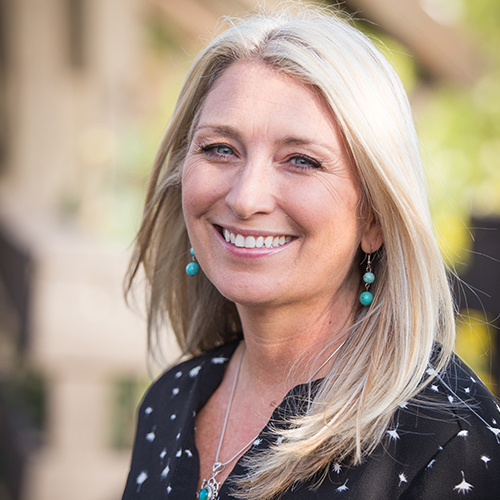

Laurel Wilson, IBCLC, CLE, CCCE, CLD is a TEDx and international speaker, author, pregnancy and lactation expert, and consultant. She served as the Executive Director of Lactation Programs for CAPPA, the Childbirth and Postpartum Professional Association for 16 years and now is on the Senior Advisor Board. She served on the Board of Directors for the United States Breastfeeding Committee from 2016-2019. She also is on the Advisory Board for InJoy Health. She owns MotherJourney, focusing on training perinatal professionals on integrative and holistic information regarding pregnancy, childbirth, and breastfeeding. She has her degree in Maternal Child Health: Lactation Consulting and is an internationally board certified lactation consultant. As the co-author of two books, The Attachment Pregnancy and The Greatest Pregnancy Ever, original Editor of the CAPPA Lactation Educator Manual, and contributing author to Round the Circle: Doulas Talk About Themselves, she loves to blend today’s recent scientific findings with the mind/body/spirit wisdom. Laurel has been joyfully married to her husband for nearly three decades and has two wonderful grown sons, whose difficult births led her on a path towards helping emerging families create positive experiences. She believes that the journey into parenthood is a life-changing rite of passage that should be deeply honored and celebrated.
Topic: Epigenetics and Breastfeeding: The Potential Longterm Impact of Breastmilk - [View Abstract]
Topic: Hold the Phone! Diet Does Matter During Breastfeeding: Implication of Diet on Fatty Acid Composition and Other Nutrients - [View Abstract]
Topic: Postpartum Mood Disorders, Breastfeeding and the Epigenetic Links from Past Into Future - [View Abstract]
Topic: Talk To Me: How Breastmilk Acts as a Communication and Gene Expression Tool Between Mother and Child - [View Abstract]
Topic: The Milk Sharing Conundrum - The Grey Area Between Scope and Need - [View Abstract]
Topic: The Placenta and Breastmilk-Unraveling the Mysterious World of the Intelligent Organs that Protect our Babies - [View Abstract]
Topic: Understanding Zika and Lyme and Breastfeeding - [View Abstract]
Topic: Unraveling the Mysteries of Human Milk: The Fascinating Role of Neohormones, Epigenetics, the Microbiome and More! - [View Abstract]
With the recent spread of the virus, Zika and the bacterial infection, Lyme Disease, many pregnant and breastfeeding families worry about the potential impact on their babies. There is a great deal of inaccurate information on the internet regarding these diseases that many parents encounter. Having good resources and current information on these emerging diseases is imperative for new families. This presentation will address transmission of the diseases, risks to babies prenatally and during breastfeeding, and precautions for pregnant and breastfeeding mothers to take.

View Details / Enroll

Virus Killing by White Blood Cells in Breast Milk: How Breastfeeding Is Protective Against HIV

Rebecca LR Powell, PhD, CLC is an Assistant Professor in the department of Medicine, Division of Infectious Diseases, at the Icahn School of Medicine at Mount Sinai Hospital. Currently Dr. Powell is analyzing the phagocytosis responses of various cell types to better understand the effects of phagocytosis receptor profiles and the impact of antibody specificity on the elicitation of biologic function. Additionally, Dr. Powell is studying the contribution of breast milk leukocytes to the relatively low rate of HIV transmission in infants exclusively breastfed by their HIV-infected mothers. She received her PhD in Microbiology from the Sackler Institute, New York University School of Medicine, and her CLC from the Healthy Children Project.
Unless access to clean water and appropriate infant formula is reliable, the World Health Organization does not recommend HIV-infected mothers stop breastfeeding. Remarkably, only about 15% of babies exclusively breastfed by their HIV-infected mothers become infected with HIV. This suggests that although breast milk is a vehicle for HIV transmission, the milk itself exhibits a strong protective effect against infection. Breastfed babies ingest 100,000 - 100,000,000 maternal cells every day via breast milk; what remains largely unclear is the contribution of these cells to the milk’s anti-viral qualities. A large study has been undertaken to isolate cells from human milk in order to measure the ability of these cells to engulf and destroy HIV by a mechanism known as phagocytosis. Over 50 samples of breast milk obtained from healthy women have been analyzed. Phagocytosis of HIV was detected in all samples. Activity did not appear to correlate with stage of lactation. Various cell types known for phagocytic capacity were identified and measured, including granulocytes, monocytes, macrophages, and dendritic cells. All samples exhibited strong granulocyte activity.These data further demonstrate that phagocytosis of HIV by immune cells from breast milk can be measured. This information will be critical for design of therapeutic vaccines capable of reducing the likelihood of mother-to-child transmission of HIV in areas where breastfeeding is essential.

View Details / Enroll

View Details / Enroll

What a Letdown: Exploring the Physiology of the Milk Ejection Reflex

Briana Tillman received her undergraduate degree in International Relations from the United States Military Academy at West Point. She has been a La Leche League Leader for 9 years and is a board certified lactation consultant. After spending 10 years as a stay-at-home mom, she is currently in her third year of medical school at Rocky Vista University College of Osteopathic Medicine in Parker, Colorado. She loves spending time with her husband and three kids—as a family they like to travel, go camping, and play string instruments in “family ensemble.”
Nick is a 3rd year medical student at Rocky Vista University College of Osteopathic Medicine. He has a background in mechanical and systems engineering but found his calling in medicine after volunteering for Health4Haiti in 2011. He lives in Colorado with his wife and they enjoy hiking, camping and fishing in the great outdoors.
Topic: What a Letdown: Exploring the Physiology of the Milk Ejection Reflex - [View Abstract]
New mothers experience the milk ejection reflex, or “letdown,” in various ways. While some feel no physical symptoms, others experience a tingling sensation and some even have significant pain or sadness. Babies also have different experiences, from the overactive “drink from the firehose” to frustratingly long waiting at feeding time. This presentation explores the multitude of influences on letdown, from internal hormones and chemical signaling pathways to the research related to such external influences as diet, alcohol, stress, and the use of synthetic oxytocin.
Many moms believe that they either do not produce sufficient milk or need a quicker, more effective letdown. Suggestions to deal with these issues range from drinking beer to adding different nutritional supplements to the diet, from hypnosis to oxytocin nasal spray. We will explore the research and unravel the best practices and recommendations we can give to clients related to their concerns about the milk ejection reflex.

View Details / Enroll

View Details / Enroll

“Zooming Ahead”; Post-NICU Discharge Very-Low-Birth-Weight Infant Follow-up Program Goes Virtual

Karen has worn a number of hats in her nursing career but always comes back to her passion for premature babies. Her background includes NICU nurse, transport nurse and NICU educator, rural nursing, staff development, pediatrics, pediatric intensive care, and community health. For over 20 years Karen has lead Calgary’s specialized “Neonatal Transition Team”, which she will talk about today. Karen has presented locally, nationally, and internationally and has also been co-investigator in several research and quality improvement studies examining outcomes for very low birth weight infants. For nearly 30 years, Karen taught, wrote instructional material, and produced on-line courses for nurses to earn a certificate in neonatal nursing through Mount Royal University. Karen is a past-president of the Canadian Association of Neonatal Nurses and served on this national board for 12 years, and on the international board of the Council for International Neonatal Nurses for 3 years. In 2019, Along with co-author, Tammy Sherrow, Karen published the book “Preemie Care: A guide to navigating the first year with your premature baby”.
Topic: “Zooming Ahead”; Post-NICU Discharge Very-Low-Birth-Weight Infant Follow-up Program Goes Virtual - [View Abstract]
Many preterm infants remain vulnerable following discharge from the neonatal intensive care unit (NICU). Health challenges persist beyond the NICU including respiratory illness, breastfeeding progression, bottle feeding incoordination, behavior and development issues, impaired growth, infrequent stooling, and gastroesophageal reflux. Preterm infants are up to two times more likely than full term infants to be hospitalized in the first year of life. Parents are challenged to transition their premature baby home and to keep them home!
Community-based, specialized follow-up services following NICU discharge have a powerful impact. The Neonatal Transition Team in Calgary, Alberta, Canada provides post-NICU follow-up for very-low-birth-weight infants and their families. The team consists of community health registered nurses with advanced skill in premature infant outcomes, feeding and neurodevelopmental assessment, and a consultation partnership with nutritional and feeding specialists. While home visits have been the backbone of this service, the team questioned the feasibility and acceptance of virtual care and completed a three month quality improvement pilot. This virtual care pilot demonstrated optimization of health-care resources by providing safe, high-quality care at a reduced operational cost. The pilot was instrumental in the team’s management during the SARS-COVID-19 pandemic. Virtual care has been fully operationalized into the service delivery model and expanded to serve other newborns with feeding or growth challenges.

View Details / Enroll





